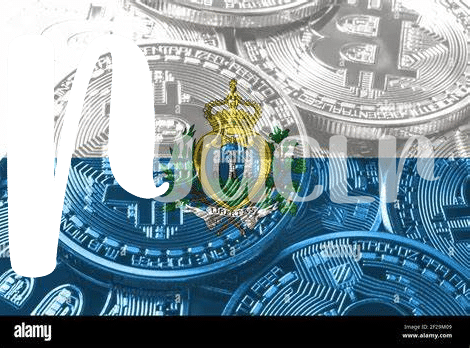The Evolution of Consumer Protection Laws ⚖️

Consumer protection laws have transformed over time to adapt to the changing landscape of commerce. From traditional brick-and-mortar stores to the digital realm, these laws have expanded to encompass a wide range of consumer rights and safeguards. Through evolving regulations and legislation, the aim has been to ensure fairness, transparency, and accountability in transactions, ultimately benefiting consumers in their interactions with businesses. As technology continues to advance, the evolution of consumer protection laws remains crucial in safeguarding individuals in the ever-shifting marketplace.
| Year | Milestone |
|---|---|
| 1962 | Enactment of the Consumer Bill of Rights |
| 1972 | Establishment of the Consumer Product Safety Commission |
| 2010 | Passage of the Dodd-Frank Wall Street Reform and Consumer Protection Act |
Challenges Faced by Bitcoin Users 🤔
The world of Bitcoin users is not without its challenges. From navigating complex regulations to safeguarding their investments, individuals utilizing this digital currency face a unique set of obstacles. Security concerns, market volatility, and the potential lack of recourse in case of disputes are just a few of the issues that can arise. Understanding how to protect oneself and stay informed about consumer rights is crucial in this evolving landscape. By staying vigilant and informed, Bitcoin users can mitigate risks and ensure a more secure future for themselves in the realm of cryptocurrency. Remember to stay informed and take proactive measures to safeguard your interests.
How Regulations Impact Bitcoin Transactions 📝

Regulations play a crucial role in shaping the landscape of bitcoin transactions. These guidelines, often put in place to protect consumers and maintain order in the financial market, impact how individuals engage with cryptocurrencies. From Know Your Customer (KYC) requirements to Anti-Money Laundering (AML) regulations, users are faced with measures aimed at ensuring transparency and accountability in their transactions. Compliance with these regulations not only affects the privacy of users but also influences the overall acceptance and integration of bitcoin into mainstream financial systems.
Moreover, the evolving nature of regulatory frameworks means that users must stay informed and adapt to changes in policies and enforcement practices. This dynamic environment requires a deep understanding of the legal implications surrounding bitcoin transactions, highlighting the need for education and advocacy to safeguard the interests of users in this digital economy.
Navigating Legal Complexities 💼

Navigating the legal landscape as a Bitcoin user can often feel like traversing uncharted territory, with regulations and requirements that may seem perplexing at first glance. Understanding the complexities involved in compliance and ensuring adherence to evolving laws can be a daunting task. However, with the right guidance and resources, individuals can confidently navigate through the legal intricacies associated with using Bitcoin. By staying informed and seeking appropriate legal counsel when needed, users can safeguard themselves against potential pitfalls and regulatory uncertainties. This proactive approach is crucial in maintaining a secure and compliant environment while engaging in Bitcoin transactions. Embracing transparency and clarity in legal matters not only empowers users but also contributes to the overall legitimacy and acceptance of cryptocurrencies within the broader framework of consumer rights. For further insights on consumer rights and transparency in Bitcoin transactions, explore the article on ensuring transparency in Bitcoin transactions for users in Saint Kitts and Nevis.
Consumer Rights in the Digital Age 🌐
Consumer rights are increasingly crucial in the digital age, with the rise of online transactions and the use of cryptocurrencies like Bitcoin. As technology advances, ensuring that consumers are protected from fraud, data breaches, and unfair practices becomes a top priority. In this rapidly changing landscape, it is essential for consumer laws to adapt and keep pace with evolving digital practices to safeguard individuals’ rights and promote transparency in online transactions. Providing clear guidelines and enforcement mechanisms can empower consumers to navigate the digital marketplace confidently, knowing that their rights are protected under the law. This emphasis on consumer rights in the digital age is essential for building trust and fostering a secure environment for all participants in the digital economy.
| Name | Age |
|---|---|
| John | 30 |
| Mary | 28 |
Ensuring a Secure Future for Bitcoin Users 🔒

Ensuring a secure future for Bitcoin users involves constant vigilance and proactive measures. Understanding the risks and staying updated on security protocols are paramount to safeguarding digital assets. Emphasizing the importance of secure storage methods, such as hardware wallets or encrypted software solutions, can significantly reduce vulnerabilities to hacking and fraud.
Additionally, fostering a community that promotes education on cybersecurity best practices and advocating for regulatory frameworks that prioritize consumer protection contribute to a more secure environment for Bitcoin users to thrive. By staying informed, engaging in responsible practices, and advocating for user rights, the Bitcoin community can collectively work towards a safer and more sustainable future.
Insert consumer rights for bitcoin users in Samoa with anchor consumer rights for bitcoin users in saint vincent and the grenadines
